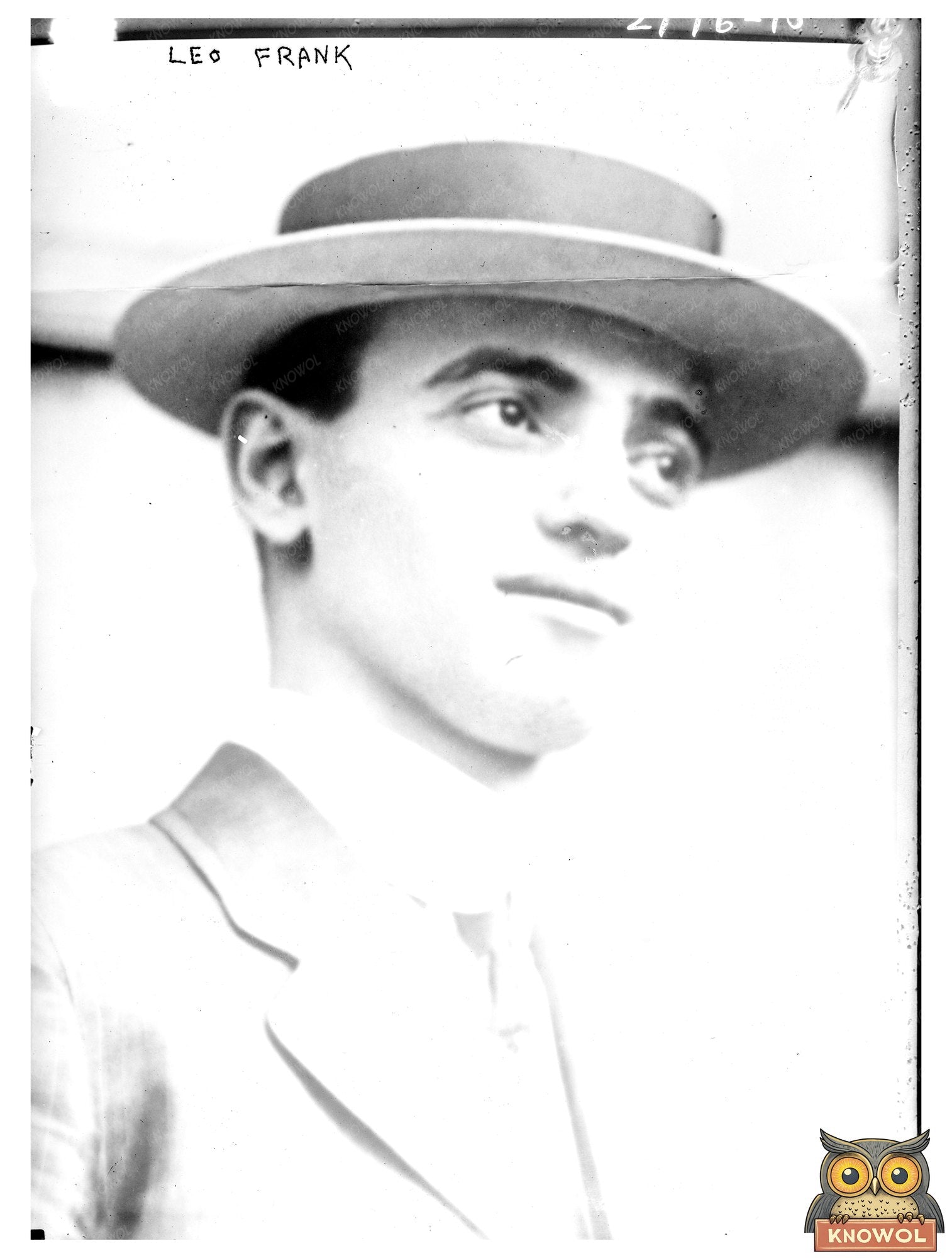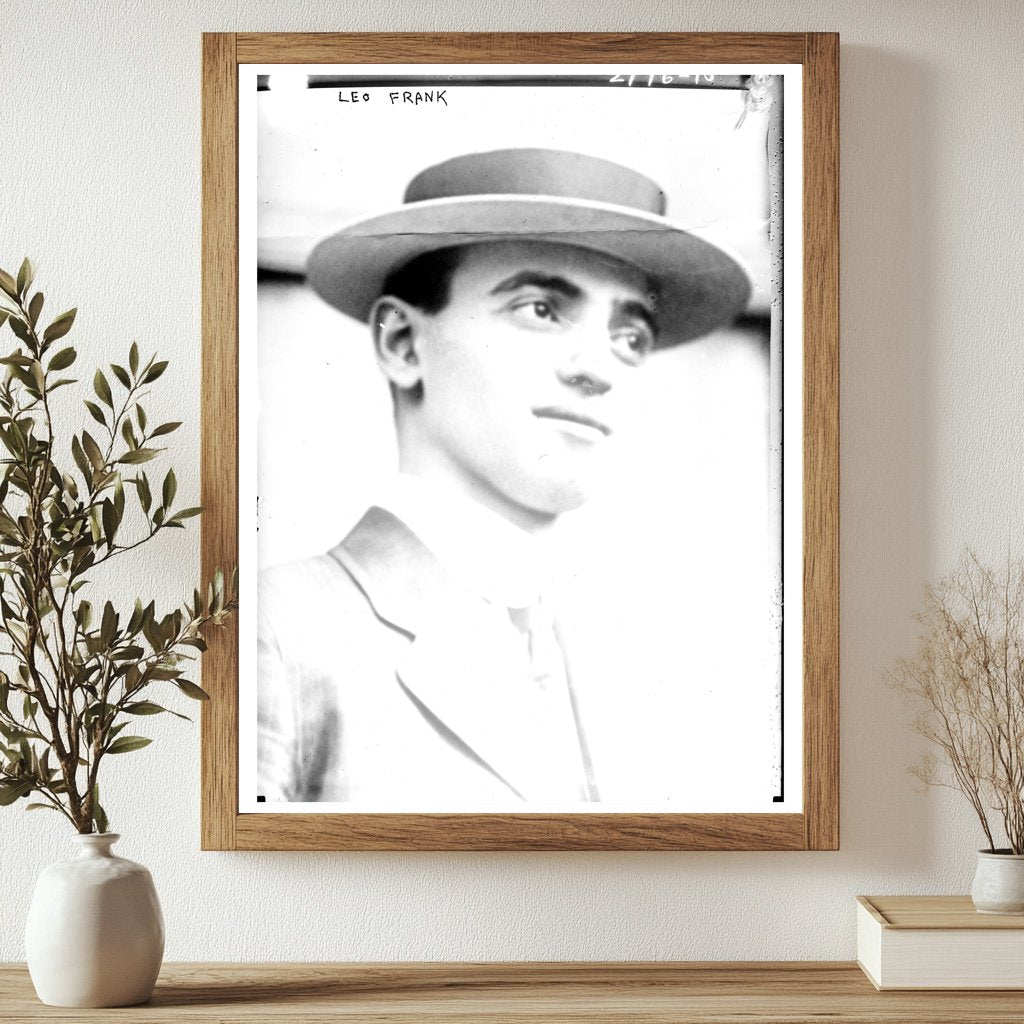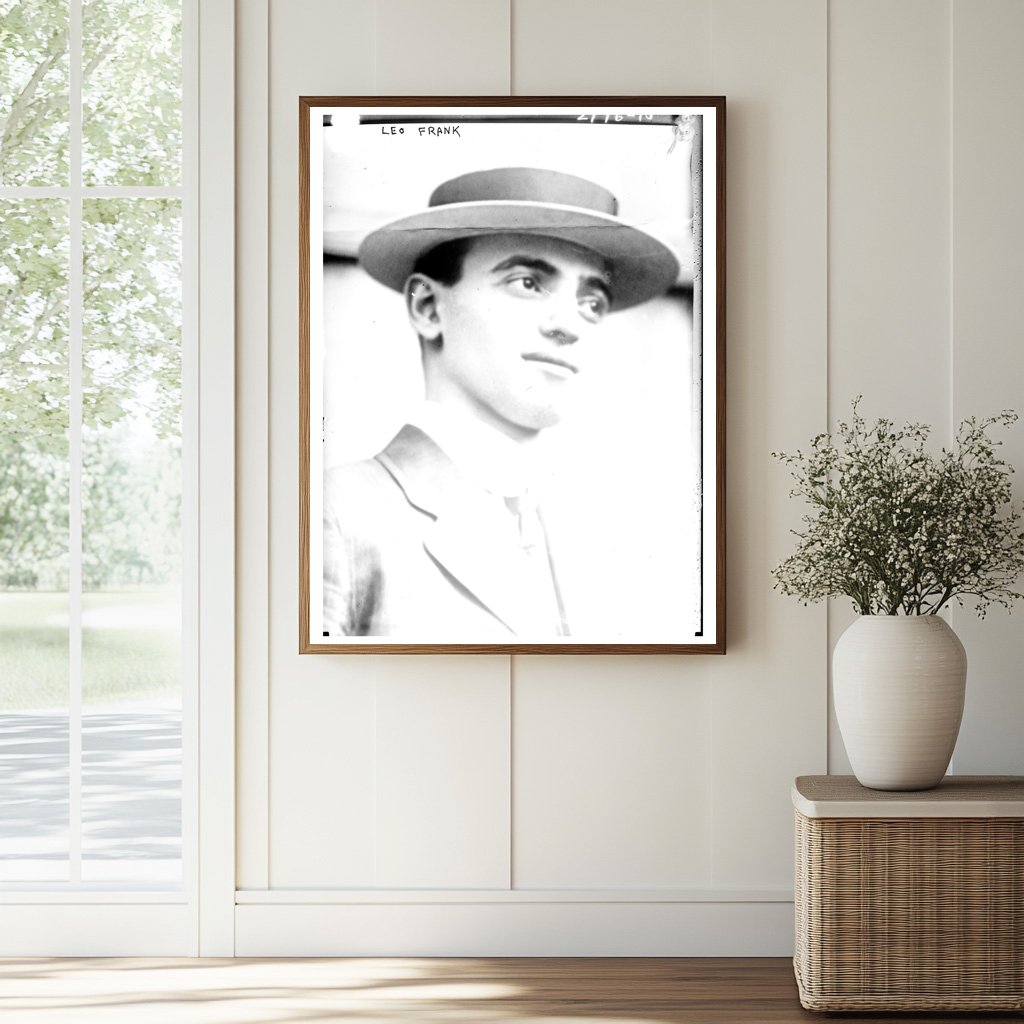


Leo Frank: A Pivotal Figure in Early 20th Century Justice
This photograph captures Leo Frank, a Jewish American businessman, in the early 1910s, around the time he was thrust into a nationally publicized legal case. Frank was the manager of the National Pencil Company in Atlanta, Georgia. In 1913, he was accused of the murder of Mary Phagan, a 13-year-old factory worker. Frank’s trial drew significant media attention and highlighted rising anti-Semitism in the United States. Despite a lack of concrete evidence, he was convicted, largely influenced by biased testimonies and public sentiment.
The aftermath of the trial was just as notable. In 1915, after years of appeals and campaigning for a fair retrial, Frank was lynched by a mob in Marietta, Georgia. This event shocked the nation and prompted a public outcry. It also spurred the formation of the Anti-Defamation League, an organization aimed at combating anti-Semitism and advocating for fair treatment of individuals, regardless of their background. This photograph serves as a stark reminder of the historical tensions surrounding race, religion, and justice in early 20th-century America.

Leo Frank: A Pivotal Figure in Early 20th Century Justice
